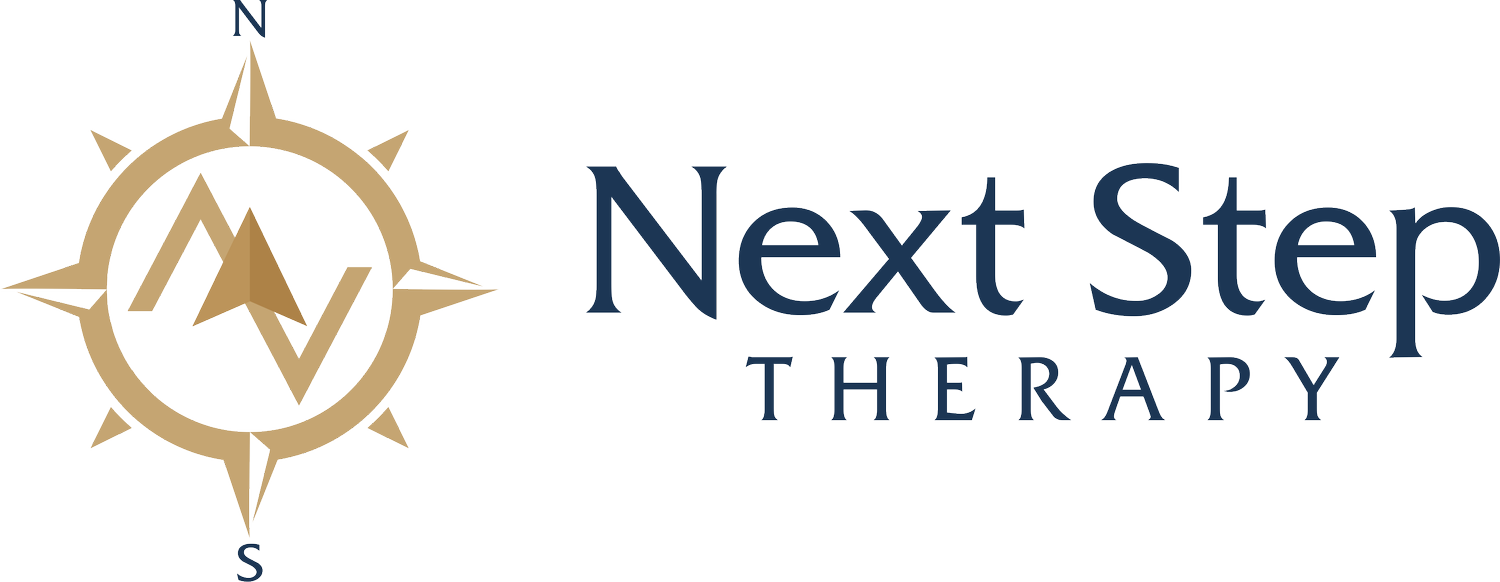Start-Up Stress to Peak Performance: A Mental Health Guide for Tech Entrepreneurs
Start-Up Stress to Peak Performance: A Mental Health Guide for Tech Entrepreneurs
Building a successful tech startup can be exhilarating—but the push for innovation, rapid scaling, and day-to-day firefighting often come at a steep mental cost. Many founders discover that long hours and constant pressure don’t automatically lead to peak performance. In fact, sustainable success relies on a blend of strategic focus, emotional balance, and the right mental tools. This is where our depth-oriented, performance-focused therapy approach can make a critical difference, helping you navigate stress without burning out.
Whether you’re negotiating with investors, racing to launch your MVP, or simply trying to keep your team inspired, addressing your mental well-being is crucial. Here’s a snapshot of what’s at stake:
- 72% of startup founders say their work impacts mental health, often with burnout, anxiety, or depression in the mix.
- Overworking can backfire: productivity falls sharply past 50 hours/week and 70+ hours frequently offer no real gains.
- Burnout signs like chronic fatigue, procrastination, or nagging self-doubt can erode leadership ability.
- Sleep matters: Founders lacking proper rest face compromised judgment, less creativity, and more stress.
- Stress management tools (e.g., mindfulness exercises, reframing setbacks) can enhance focus and resilience.
Why Mental Health Matters for Business Success
- Poor mental health impairs decision-making, team dynamics, and innovation.
- Leaders with good mental health can better motivate employees and steer long-term growth.
- Mental health programs in startups cut stress by 70% and improve decisions by 52%.
Immediate Steps You Can Take
- Set Boundaries: Define reasonable work hours, protect personal time, and communicate your limits clearly.
- Prioritize Rest: Aim for at least 7 hours of sleep; short power naps can also keep your mind sharp.
- Use Focused Mental Tools: Lean on techniques like mindfulness, reframing, or the 5-4-3-2-1 grounding exercise when stress peaks.
- Get Help Early: If you sense creeping anxiety or persistent sleep problems, consider professional support right away.
A healthy mind is your best ally for consistent performance and sustainable business success.
From Start-Up Stress to Peak Performance: A Four-Stage Framework
Our performance-focused, depth-oriented therapy follows a four-stage process to ensure lasting benefits:
- Performance Insight – Understand how stress and mental health directly influence leadership, decision-making, and your team.
- Pattern Recognition – Identify overwork cycles, perfectionism, and other habits harming your potential.
- Strategic Intervention – Implement mindfulness, reframing, and workplace culture adjustments for real change.
- Sustainable Integration – Cement these strategies into everyday routines so you can thrive long-term.
Stage 1: Performance Insight
- 72% of founders struggle with mental health concerns, affecting productivity and creativity.
- Pushing past 50 hours/week often yields little extra output and can even undermine sound decision-making.
- Ignoring burnout signs—chronic fatigue, missed deadlines, self-doubt—can impair leadership and strategic thinking.
Signs and Causes of Founder Burnout
Burnout is rarely a sudden collapse. It usually creeps in after extended periods of stress. 38% of startup founders experience depression, anxiety, or ADHD [2]. Recognizing these patterns early can protect both your mental state and your company’s trajectory.
"You're almost expected to be superhuman... There's constant pressure to overdeliver, outperform, be overly everything. And it's not just a phase—it's relentless."
– Aditi Shekar, Zeta Cofounder & CEO [2]
| Burnout Stage | key Warning Signs | Impact on Performance |
|---|---|---|
| Early Warning | Dissatisfaction, procrastination | Minor dip in decision quality |
| Chronic Stress | Missed deadlines, trouble focusing | Sharper productivity decline |
| Full Burnout | Physical symptoms, self-doubt | Severe leadership impairment |
When Working Harder Backfires
Beyond 55 hours a week, more effort often doesn’t equal more progress [5]. Founders who assume “longer hours = better outcomes” risk diminishing returns and even sabotage their strategic thinking. Meanwhile, ignoring mental health can set a negative tone throughout the organization.
Stage 2: Pattern Recognition – Breaking Performance-Blocking Habits
Sleep Loss Effects on Business Choices
Missing sleep doesn’t just leave you tired—it can undermine every decision you make. About 55% of founders grapple with sleep issues [6][7]. Without adequate rest, your capacity for logical thinking and emotional balance shrinks, increasing poor judgments.
Stress Impact on Problem-Solving
Chronic stress erodes creativity and clarity. Leaders under heavy strain are 40% more likely to make flawed choices [8], costing businesses billions each year [9]. That’s a hit few startups can afford.
Perfectionism’s Cost to Progress
Striving for perfection can slow you down. Over-editing or micromanaging saps the energy that could be spent refining your strategy. Embracing a “good enough” launch mindset encourages agility. Evaluate your work based on clear standards, then move on [10].
Stage 3: Strategic Intervention – Mental Performance Tools for Founders
Mindfulness for High-Stress Work
Mindfulness isn’t just for quiet retreats—it’s a quick, powerful way to regulate tension in day-to-day startup life. Studies link even brief sessions to improved concentration and calmer decision-making.
- 4-4 Breathing: Inhale for four seconds, hold for four, exhale for four, then hold for four again before repeating. This soothes your nervous system, often in under a minute.
- Desk Body Scan: Close your eyes, mentally scan from your feet to your head, relaxing each muscle group. Takes 3–5 minutes and relieves hidden tension.
"Even a brief mindful break resets your mind, letting you handle startup challenges from a place of composure rather than frantic energy."
Handling Business Setbacks Better
Reframing setbacks can unlock fresh solutions. Airbnb’s pivot to professional photography at a low point eventually fueled their surge in bookings [15]. Cognitive reframing helps you see failure as a teacher, not a dead-end.
Creating a Mentally Healthy Workplace
Encouraging open communication, a learning culture, and flexible policies can significantly lower turnover and boost innovation [16][17]. You can shape a supportive environment where employees feel safe sharing concerns and offering creative ideas.
Stage 4: Sustainable Integration – Long-Term Mental Performance
Rest’s Role in Peak Performance
Adequate sleep influences memory, problem-solving, and strategic thinking. Yet 55% of founders face ongoing sleep issues [6][7]. Protecting rest with a consistent schedule or short daytime naps can sharpen your competitive edge.
Matching Values to Business Goals
Tying your personal values to your startup’s culture and strategy deepens commitment—both for you and your team. Whether it’s hiring people who share your vision or running operations that reflect your ethics, being value-driven can steady the ship when stress is high.
Setting Work-Life Boundaries
In a 24/7 environment, boundaries protect your mind. You might separate work and personal devices, practice time blocking, and communicate availability so your team knows when to expect responses.
"Daring to set boundaries is about having the courage to love ourselves, even when we risk disappointing others." – Brené Brown [22]
Managing Burnout and Why Founder Mental Health Matters
Quick-Start Guide for Busy Founders
Here are some go-to tools you can use immediately.
3 Mental Health Tools to Use Today
- Thought Defusion
Add “I’m having the thought that…” before a negative assumption. This step back helps you see it as just a thought, not reality [25]. - Positive Reframing
Shift your perspective on problems: “We missed Q1 targets” becomes “We found new improvements to focus on in Q2.” Weekly reflections can reveal fresh insights [25]. - 5-4-3-2-1 Grounding
This quick exercise interrupts racing thoughts:
• Notice 5 things around you
• Listen for 4 distinct sounds
• Identify 3 bodily sensations
• Acknowledge 2 smells
• Focus on 1 taste
[25]
These help in the moment, but ongoing support may be necessary if anxiety or insomnia persist.
When to Get Professional Help
If sleepless nights, constant worry, or a sense of being overwhelmed persist, it may be time for professional guidance [19]. Speaking with a therapist who understands the unique stressors of entrepreneurship can restore clarity.
Balancing Today’s Work with Long-Term Health
Combining minor daily habits with big-picture goals ensures your growth doesn’t come at the expense of well-being:
- Morning Reset: Start your day with short breathing or visualization to reduce panic-checking emails [27].
- Time Blocks: Organize your work into focused sprints; if you falter, just reset [27].
- Sustainable Growth Mindset: Delegate low-priority tasks, track metrics like CLV for real progress, and keep personal wellness in the mix [26].
Conclusion: Mental Health as a Business Asset
Mental wellness isn’t just personal—it’s a strategic asset for high-performing startups. Founders who nurture their mental health can see a 25% productivity gain and a 56% boost in employee engagement [29]. Yet, 81% of founders who struggle do so quietly, risking burnout and hasty decisions [30].
"Founders must grow personally alongside their company to develop the resilience and skills needed for effective leadership."
– Kjiel Carlson, Fjordify [28]
When entrepreneurs prioritize emotional stability, they tend to make sharper choices, build healthier teams, and steer their vision more effectively. It’s not about grinding harder; it’s about working smarter—while respecting your own limits and mental well-being.
If you’re stuck in cycles of overwork or persistent worry, Next Step Therapy can help. Our depth-oriented methods integrate performance psychology, mindfulness, and stress management to foster genuine success that won’t drain you or your team.
Ready to level up without wearing yourself down? Let’s craft a plan. Our four-stage framework—Performance Insight, Pattern Recognition, Strategic Intervention, and Sustainable Integration—supports founders in tackling root stressors, refining leadership skills, and thriving in any high-pressure environment.











